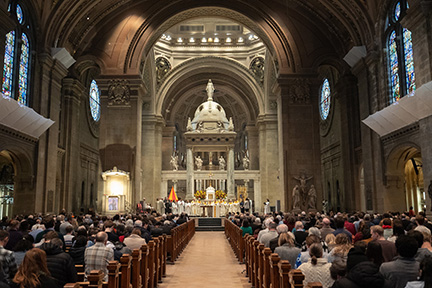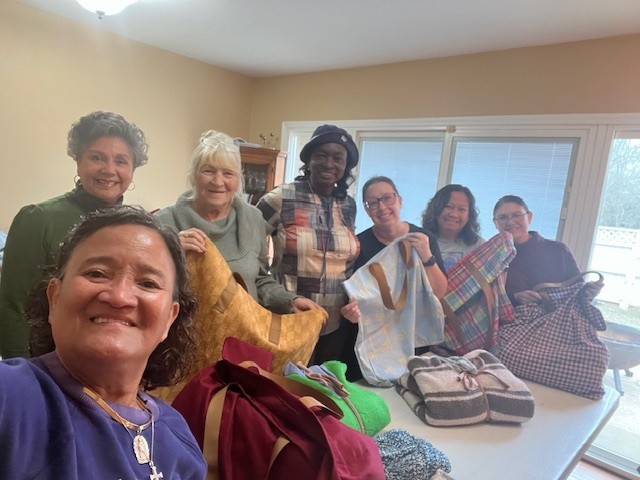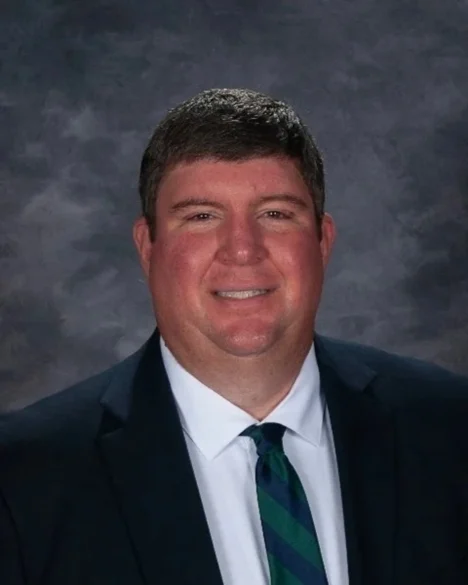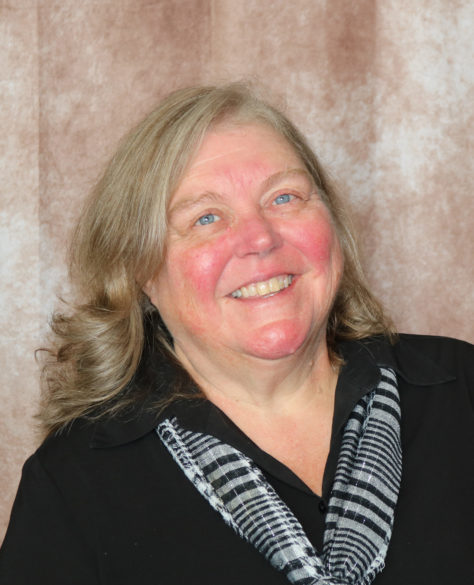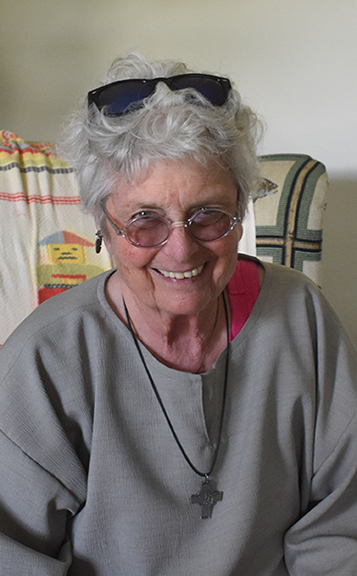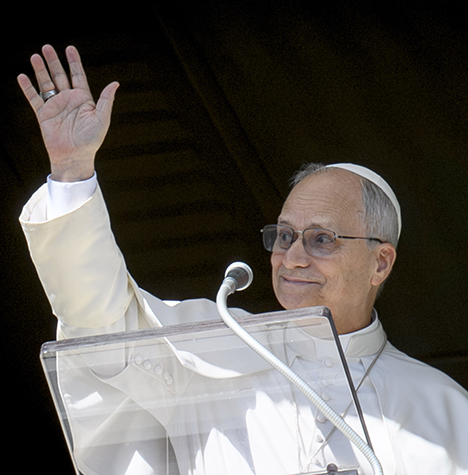SPIRITUAL ENRICHMENT
DIOCESE – Engaged Encounter 2026 dates, Feb. 27 – March 1; May 1-3; Aug. 28-30; Oct. 2-4. Details: couples may register at https://jacksondiocese.flocknote.com/signup/230073 or email debbie.tubertini@jacksondiocese.org.
DCYC 2026, March 20-22 in Vicksburg. The conference will feature keynote talks, music, liturgy, games, small groups, Bishop Chanche Youth Awards and much more. Open to ninth through twelfth grades. Details: Contact your parish youth ministry office.
Young Adult Spring Retreat, Saturday, April 11 from 11:30 a.m. to 5 p.m. at Locus Benedictus in Greenwood. Ages 21-35 are invited to a day of celebration and spiritual renewal. Cost: $20/includes lunch. Register at https://bit.ly/2026YASpringRetreat. Details: amelia.rizor@jacksondiocese.org or (601) 949-6931.
GLUCKSTADT – St. Joseph, Lenten Retreat: A Journey with Jesus, Saturday, Feb. 21 beginning at 8:30 a.m. in the parish hall; ends after 4 p.m. Mass in the church. Please RSVP by Wednesday, Feb. 18. Details: church office (601) 856-2054.
HERNANDO – Holy Spirit, Millions of Monicas – Praying with confidence for our children, each Monday from 5-6 p.m. in the church. Join with other mothers and grandmothers as we pray for our children’s faithful return to the church. Details: church office (662) 429-7851.
JACKSON METRO AREA – Theology on Tap, Tuesday, March 3 with Diocesan Chancellor Mary Woodward. Meet at Blaylock Photography, 117 N. Wheatley, Ridgeland at 7 p.m. Details: amelia.rizor@jacksondiocese.org.
MERIDIAN – St. Patrick, Lenten Retreat with Father Sebastian Myladil – “The Paschal Mystery: From the Cross to New Life,” March 1-3. Details: church office (601) 693-1321.
PARISH & YOUTH EVENTS
CANTON – Holy Child Jesus, Sister Thea Bowman Annual Musical Celebration, Saturday, March 28 at 3 p.m. Details: Cherie at arievans29@yahoo.com or (601) 259-1363.
JACKSON – Cathedral of St. Peter, Bishop Chanche Awards, Saturday, Feb. 28 at 11 a.m.
JACKSON – Sister Thea Bowman School, 20th annual $5,000 Draw Down, Saturday, April 25 at 6:30 p.m. Tickets: $120 and second chance insurance $15. Details: school office (601) 352-5441.
JACKSON AREA – Young Adult Basketball League, play March 5 – April 30. Teams for men 18-35. League registration fee: $35. Deadline: Feb. 23. Games at First Baptist Jackson Gym from 6-9 p.m. on Thursdays. Details: amelia.rizor@jacksondiocese.org or (601) 949-6931.
MADISON – St. Joseph School, Annual Draw Down, Saturday, Feb. 21, 2026, at Reunion Country Club. Details: school office (601) 898-4800.
OLIVE BRANCH – Queen of Peace, Spaghetti Luncheon, Sunday, Feb. 22 from 11 a.m. to 2 p.m. with silent auction. Cost: $10 adults; $6 child; $35 family. Dine in or carry out. Details: church office (662) 895-5007.
PARISHES OF NORTHWEST MS – World Youth Day in South Korea, Aug. 3-7, 2027. Join the Priests of the Sacred Heart on an unforgettable pilgrimage that includes Mass with Pope Leo and more. For ages 16-23. Cost: $1,333 plus fundraising. Application packets available in the parish office. Registration deadline is Feb. 22, 2026. Details: Contact Vickie at (662) 895-5007.
SOUTHAVEN – Sacred Heart School, Open House, Sunday, Feb. 22 from 2-4 p.m. Come meet our staff and learn about our diverse, loving school community. Details: school office (662) 349-0900.
LENTEN OPPORTUNITIES
CLINTON – Holy Savior, Stations and Mass at 5:30 p.m.; and Lenten meals following 5:30 p.m. Mass, every Friday (no meal on March 13). Lenten Penance Service, Wednesday, March 4 at 6 p.m.
GLUCKSTADT – St. Joseph, Stations, Every Friday during Lent at 6 p.m. or after Mass.
HERNANDO – Holy Spirit, Penance Service, Wednesday, March 25 at 7 p.m.
JACKSON – St. Richard, Knights of Columbus, Fish Fry Dinners, Feb. 27, March 20 and March 27 from 6-7 p.m. following Stations. Dine in, carry out or order in advance at https://bit.ly/STRfish2026. Dinner includes fried fish, fries, coleslaw, hush puppies and dessert. Cost: adults $15; children $8; families $45. Details: church office (601) 366-2335.
MADISON – St. Francis, Rosary at 6 p.m.; Stations at 6:30 p.m.; and Lenten meals at 7 p.m., Fridays during Lent.
OLIVE BRANCH – Queen of Peace, Soup and Stations, every Friday during Lent. Supper at 5:30 and Stations begin at 7 p.m. Last Friday of Lent will be Knights Fish Fry. Penance Service, Wednesday, March 18 at 7 p.m.
OXFORD – St. John, Knights Fish Fry, Friday, Feb. 20 from 5:30-7 p.m. Details: church office (662) 234-6073.
PEARL – St. Jude, Stations, every Friday during Lent at 10:30 a.m. and 6 p.m. Lenten Penance Service, Wednesday, Feb. 25 at 6 p.m.
SOUTHAVEN – Christ the King, Stations, Every Friday during Lent at 7 p.m. Penance Service, Wednesday, March 4 at 7 p.m.
CHANCERY EMPLOYMENT OPPORTUNITIES
JACKSON – Event Planning Coordinator: The Diocese of Jackson is seeking a faith-filled and organized Event Planning Coordinator to assist with planning and coordinating diocesan gatherings, meetings and donor events. Applicants should have prior event planning experience, strong communication and organizational skills, and availability for occasional evenings, weekends and travel. To apply, submit a résumé and cover letter to Rebecca Harris at Rebecca.harris@jacksondiocese.org. Find more information at https://bit.ly/CDJjobs.
Coordinator of Operations: The Office of Catholic Education for the Diocese of Jackson is seeking a detail-oriented and service-minded Coordinator of Operations to support the day-to-day operational needs of diocesan schools and Early Learning Centers. Responsibilities include compliance tracking, recordkeeping, accreditation support, school safety coordination, systems support, and event logistics. Applicants should have strong organizational and communication skills, comfort with databases and office software, and experience in administration or school-related operations. To apply, submit a résumé and cover letter to Joni House at joni.house@jacksondiocese.org.



